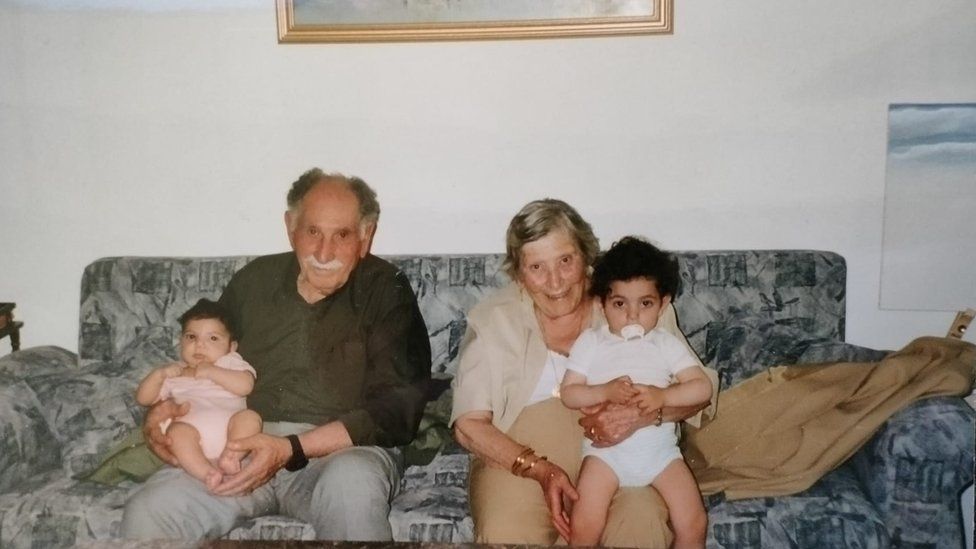-

-
-
Loading

Loading

Eid Haddad's parents were teenagers when they witnessed the brutality of British presence in Palestine in 1938. His father recounted how soldiers attacked people, including fatally striking a man's head with a wooden hammer. Another incident involved a father and son being shot in the back while hanging tobacco leaves. Haddad's parents lived in al-Bassa, a village that was punished by collective measures imposed by British forces. These punitive actions targeted entire villages in response to attacks by armed rebels. Haddad shared his family's experience for a new BBC Radio 4 series called The Mandates, which explores the lasting impact of British and French control in the Middle East a century ago. The series features interviews with historians, experts, and individuals directly affected by the events of that time. The author of the article had previously connected with Haddad during coverage of a Palestinian-led campaign seeking an apology from the UK for alleged war crimes committed during its control of Palestine from 1917 to 1948. Haddad's own childhood in Lebanon was marked by continued violence and displacement. Like many others, his parents' lives were shaped by the conflicts and sectarian tensions caused by British and French rule in the region after the European powers abandoned their interventions. The mandates granted to Britain and France by the League of Nations during World War I solidified their control over the region. In Palestine, Britain's policies contributed to the rise of rival national movements, leading to a violent clash and a brutal crackdown on an Arab uprising. The British faced rebellion from Zionist militias later on, causing chaos and policy reversals. Similarly, the French Mandate established new boundaries and suppressed Arab rebellions in both Syria and Lebanon. After World War II, Britain and France withdrew from the region, but not before the Israeli state was declared and Arab armies invaded. Haddad's parents fled al-Bassa as their village was destroyed by Jewish paramilitary forces. The conflicts of 1947-1948 resulted in the displacement of at least 750,000 Palestinians, known as the "Nakba" or catastrophe. Haddad was born and raised in a Palestinian refugee camp in Lebanon, where sectarian tensions were already high due to French rule. The situation worsened with the arrival of Palestinian refugees and the rise of the Palestine Liberation Organisation (PLO). Lebanon eventually descended into a sectarian civil war, and Haddad personally experienced the violence when his 16-year-old brother was shot dead by Christian Lebanese ultranationalists. Throughout his life, Haddad has dealt with the effects of post-traumatic stress disorder (PTSD) caused by his experiences. His father also suffered due to the traumatic events he witnessed, narrowly escaping interrogations by British troops in al-Bassa in 1938. Haddad recalls how his father was disguised as a girl by a villager, saving him from torture. The UK government has never acknowledged the atrocity in al-Bassa, which claimed the lives of more than 30 people. Living in Europe, Haddad expresses a deep longing for his homeland, feeling like a piece of himself is missing. He likens himself to an island in a foreign ocean.